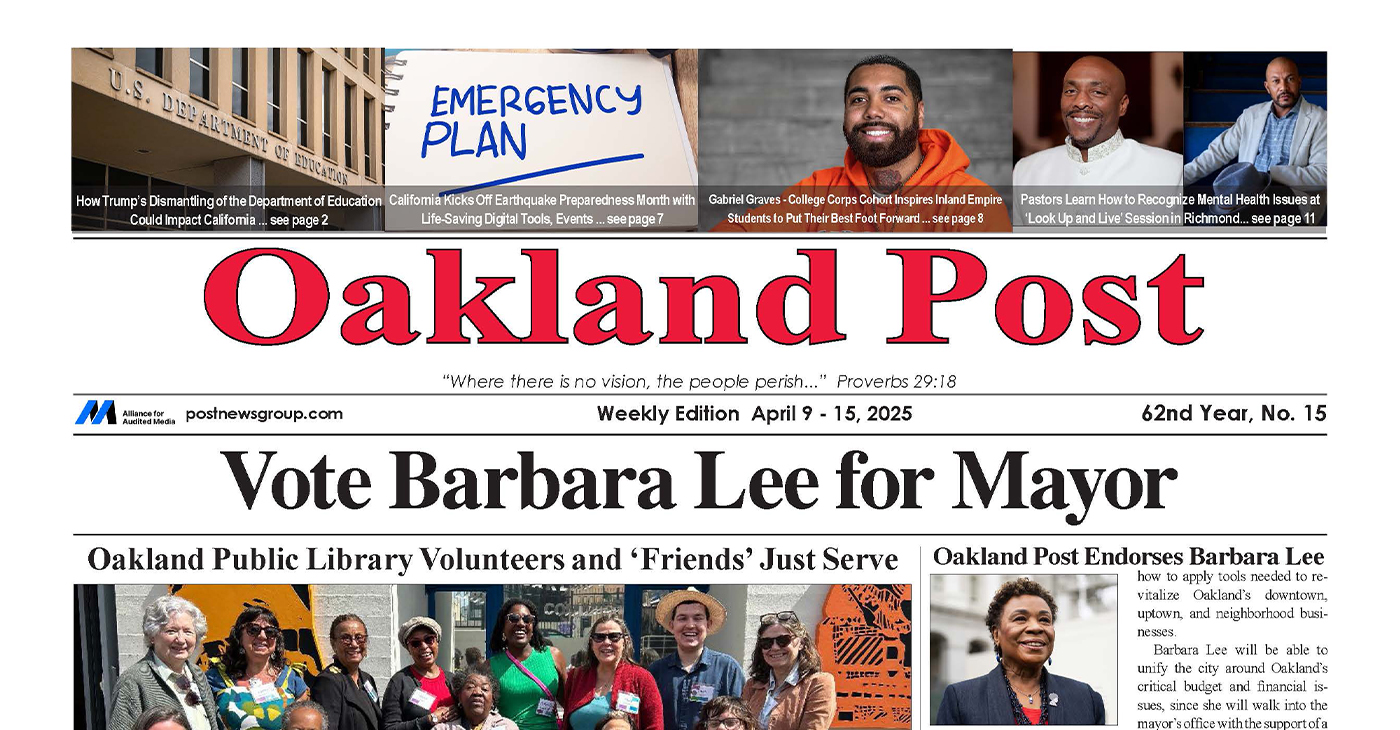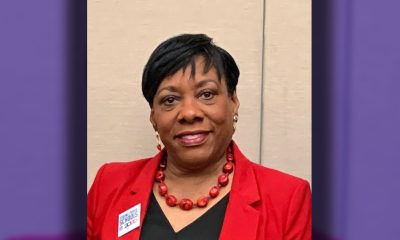Oakland
Cherished Oakland Teacher Margie Mayfield, 82

Margie Mayfield, a beloved Oakland educator, died on June 26. She was 82.
Mrs. Mayfield started her 30-year Oakland teaching career at Markham Elementary School in 1967. She was there when the Black Panther Party started its free breakfast program and when Oakland had its first African American superintendent, Marcus Foster.
“Mrs. Mayfield” was a fixture in room 14, teaching two generations of first- and second-graders how to read, write, do math and become critical thinkers. Not only was her classroom a special place for her students, but also her friends. It was the place they came before school started, during lunchtime and sometimes after school for fellowship and to socialize. She served as the building representative for the Oakland Education Association.
Born on June 19, 1935, she spent her early years in Monroe, Louisiana. After graduating from Grambling in 1956, she taught first grade at George Washington Carver K-8 in Monroe. By 1965 she joined her husband in San Francisco. In 1966, they had their only child, Kimberly LaShawn Mayfield (Lynch). Kimberly grew up to graduate from UC Santa Barbara and teach in the Oakland schools, using much of her mother’s teaching wisdom to help her students.
She currently served as Education Department chair at Holy Names University.
Mrs. Mayfield enjoyed reading, talking on the phone and listening to the Blues. She was also a passionate sports fan who followed players’ careers from college to the pros. The most joyous time for Mrs. Mayfield and her husband, Aubrey, was spending time with their grandson Joshua Aubrey Zachariah Mayfield Lynch. They were the embodiment of proud grandparents.
Margie Mayfield was known for her charisma, warmth, quick wit and sense of humor. She leaves to cherish her memory her husband of 58 years, Aubrey Mayfield; daughter, Kimberly Mayfield Lynch; son-in -law Joseph Lynch; grandson, Joshua Lynch; sister, Brenda Gary; sister-in-law, Avenal Gary, and many nieces, nephews, and close friends.
Activism
Oakland Post: Week of April 23 – 29, 2025
The printed Weekly Edition of the Oakland Post: Week of April 23 – 29, 2025

To enlarge your view of this issue, use the slider, magnifying glass icon or full page icon in the lower right corner of the browser window.
Activism
Oakland Post: Week of April 16 – 22, 2025
The printed Weekly Edition of the Oakland Post: Week of April 16 – 22, 2025

To enlarge your view of this issue, use the slider, magnifying glass icon or full page icon in the lower right corner of the browser window.
Activism
Oakland Post: Week of April 9 – 15, 2025
The printed Weekly Edition of the Oakland Post: Week of April 9 – 15, 2025

To enlarge your view of this issue, use the slider, magnifying glass icon or full page icon in the lower right corner of the browser window.
-

 Activism3 weeks ago
Activism3 weeks agoOakland Post Endorses Barbara Lee
-

 Activism4 weeks ago
Activism4 weeks agoOakland Post: Week of March 28 – April 1, 2025
-

 Activism3 weeks ago
Activism3 weeks agoOakland Post: Week of April 2 – 8, 2025
-

 #NNPA BlackPress3 weeks ago
#NNPA BlackPress3 weeks agoTrump Profits, Black America Pays the Price
-

 Activism2 weeks ago
Activism2 weeks agoOakland Post: Week of April 9 – 15, 2025
-

 #NNPA BlackPress3 weeks ago
#NNPA BlackPress3 weeks agoHarriet Tubman Scrubbed; DEI Dismantled
-

 #NNPA BlackPress3 weeks ago
#NNPA BlackPress3 weeks agoLawmakers Greenlight Reparations Study for Descendants of Enslaved Marylanders
-

 #NNPA BlackPress3 weeks ago
#NNPA BlackPress3 weeks agoTrump Targets a Slavery Removal from the National Museum of African-American History and Culture























































